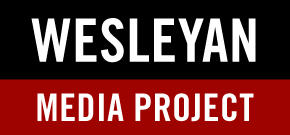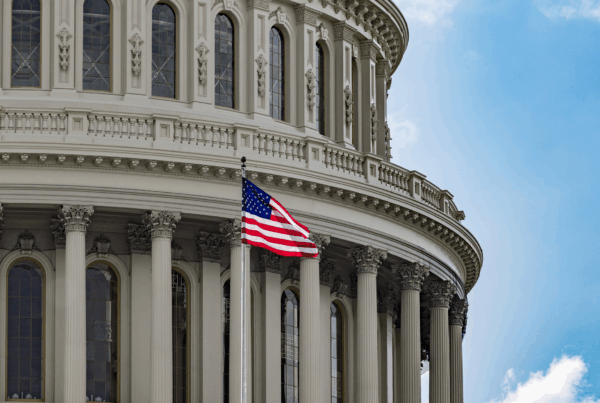The Wesleyan Media Project to unveil first analysis of 2012, with new support from Knight Foundation and the Rockefeller Brothers Fund
(MIDDLETOWN, CT.) Jan. 26, 2012 – Complete with new data on the Florida primary, The Wesleyan Media Project Monday will release its first analysis of campaign ads for 2012.
The John S. and James L. Knight Foundation and the Rockefeller Brothers Fund are supporting the effort, a non-partisan initiative to enhance transparency about those attempting to influence American elections.
A resource for journalists, policymakers, scholars and voters, the project tracks and analyzes all broadcast advertisements aired on behalf of federal and statewide election candidates in all of the country’s media markets. In 2010, more than 100 news organizations cited the project’s data in 400 plus stories in the last five weeks before the mid-term elections.
This year, once the general election campaign begins, the Wesleyan Media Project will expand its analysis to include all YouTube videos mentioning presidential candidates, an increasingly important campaign tool. This is the first presidential election since the landmark, 2010 Supreme Court ruling on the Citizens United case, which opened the door for unlimited corporate and union investment in federal elections
“Television and, increasingly Internet, advertising consume a significant amount of the resources we spend on selecting our leaders,” said John S. Bracken, director of media innovation and journalism for Knight Foundation. ”This project supplies voters, journalists and policymakers with valuable information on how and where those resources are being used by candidates, both on the state and national levels.”
Knight’s funding is the first in a series of grants being announced that support new ways to deepen Americans’ engagement in elections and foster more informed communities.
“As our election campaigns degenerate into a post-Citizens United, no-holds-barred, wild west of political advertising, it is vital to the future of our democracy that the press and the public have as much information as possible about those who are trying to influence our elections,” said Benjamin R. Shute, Jr., program director at the Rockefeller Brothers Fund. “The Rockefeller Brothers Fund is pleased to support the work of the Wesleyan Media Project in bringing greater transparency to the sources of political advertisements.”
In the wake of Citizens United, many politicians, pundits and scholars feared the decision would open the floodgates to millions, if not billions, of dollars from corporate treasuries being spent on 30-second attack ads. In fact, evidence collected by The Wesleyan Media Project during the 2010 election cycles confirmed that trend, said the project’s Travis Ridout. Ad spending by independent groups increased 350 percent over 2008 levels in U.S. House races, and over 90 percent of the ads sponsored contained an attack on a candidate. There is little doubt that such spending will increase during the 2012 election cycle with the White House at stake and in the absence of legislation that would rein in corporate and union spending, said the project’s Michael Franz.
“The 2010 election was an historic year for political advertising, but with the Oval Office on the line, we expect 2012 to pulverize the 2010 records,” said the project’s Erika Franklin Fowler. “With generous support from Knight Foundation and Rockefeller Brothers Fund, we are proud to once again provide the only real-time, publicly available information on the content and spending of political advertising in this cycle.”
For the 2012 cycle, the project will analyze raw data for the television spots, which will be obtained from Kantar Media/CMAG. Analysts will also use a specialized web crawler designed to collect information daily from presidential election content uploaded to YouTube. This will include candidate, party and outside organization content, as well as selected content uploaded by individuals mentioning candidates for president. The project will then code each ad (televised and Internet) on several characteristics, including its sponsor (corporate, union, party, candidate, interest group, individual) and tone (negative or positive), allowing a comparison of all of these attributes to determine how ads differ by source.
Periodic releases of data will be posted on the project’s website and dispersed via Twitter @wesmediaproject. To be added to our email update list, click here.
The Wesleyan Media Project is directed by Erika Franklin Fowler, assistant professor of government at Wesleyan University, Michael M. Franz, associate professor of government at Bowdoin College and Travis N. Ridout, associate professor of political science at Washington State University.
Contact info for the Wesleyan Media Project:
David Pesci: 860 685 5612, dpesci at wesleyan.edu
Erika Franklin Fowler: 860 685 3407, efowler at wesleyan.edu
Michael M. Franz: 207 798 4318, mfranz at bowdoin.edu
Travis N. Ridout: 509 335 2264, tnridout at wsu.edu
Contact for Knight Foundation:
Andrew Sherry: 305-908-2677, sherry@knightfoundation.org
Wesleyan University, in Middletown, Conn., is known for the excellence of its academic and co-curricular programs. More than 2,700 undergraduates and over 200 graduate students from around the world pursue their classroom studies, research projects, and co-curricular interests in ways that are demanding and intensely rewarding.
The John S. and James L. Knight Foundation supports transformational ideas that promote quality journalism, advance media innovation, engage communities and foster the arts. We believe that democracy thrives when people and communities are informed and engaged. For more, visit www.knightfoundation.org.
The Rockefeller Brothers Fund advances social change that contributes to a more just, sustainable, and peaceful world. The Fund’s grantmaking is organized in three thematic programs that support work in the United States and at the global level: Democratic Practice, Sustainable Development, and Peacebuilding; and in three pivotal place programs that address these themes in specific contexts: New York City, Southern China, and the Western Balkans. For more, visit www.rbf.org.
####



